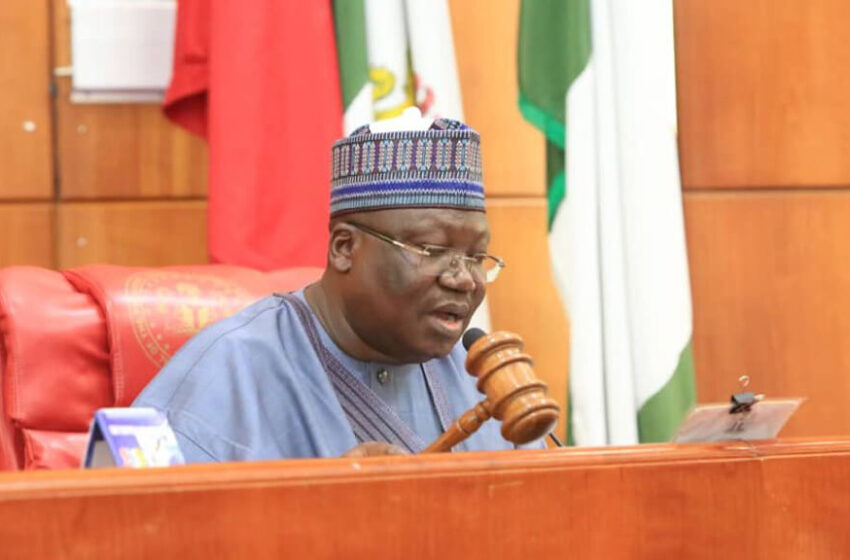Poor Nigerians don’t benefit from FG’s social investment initiative — National Assembly

The National Assembly says poor Nigerians are mostly excluded from the Federal Government’s Social Investment Programmes (SIP) due to how they are being implemented.
The Senate President, Ahmad Lawan, and the Speaker of the House of Representatives, Femi Gbajabiamila, stated this on Tuesday during a meeting the Minister of Humanitarian Affairs, Disaster Management and Social Development, Sadiya Farouq.
Speaking during the meeting which had in attendance top officials of the ministry as well as principal officers of the 9th Assembly, Lawan said more needs to be done to ensure federal government’s SIP initiative gets to the intended beneficiaries.
Lawan said: “We feel that we need to work together with you to ensure that there is effectiveness and efficiency so that those who are supposed to benefit, benefit directly. When, for example, some conditions are set, that those who will benefit will have to go online, through the internet or must have Bank Verification Number and the rest of it.
“I want to tell you that the majority of those who are supposed to benefit have no access to power. They have no access to Internet. They have no bank account, so no BVN. In fact, many of them don’t even have phones and these are the poorest of the poor. Yet, some of the conditions or guidelines which you set inadvertently leave them out.
“We believe that when we work together; the Executive side of government and the National Assembly as representatives of the people, we will be able to reach many more of these people who are in serious distress even before the coronavirus outbreak.
“Now with coronavirus, they need our attention more than ever before. The time has come that we review the ways and manner we use to deliver the services under the SIP to Nigerians.
“So, we need to put on our thinking cap and work out some strategies on how to identify the poorest persons in Nigeria. I think we have not been able to reach far out there to get them properly captured.”
In the same vein, Gbajabiamila charged the minister to ensure her team live up to the expectations of Nigerians during this lockdown period.
He said: “Your job right now is probably the most important as we speak, because you are saddled with the responsibility of alleviating poverty or the hardship, due to no fault of anyone, being thrust upon Nigerians.
“The questions are going to be asked; how do you come about your lists? How comprehensive is your distribution list? What are the parameters? What is the geographical spread? So these are tough questions that are going to be asked but I want you to look at them as frank questions that we need to ask.”

